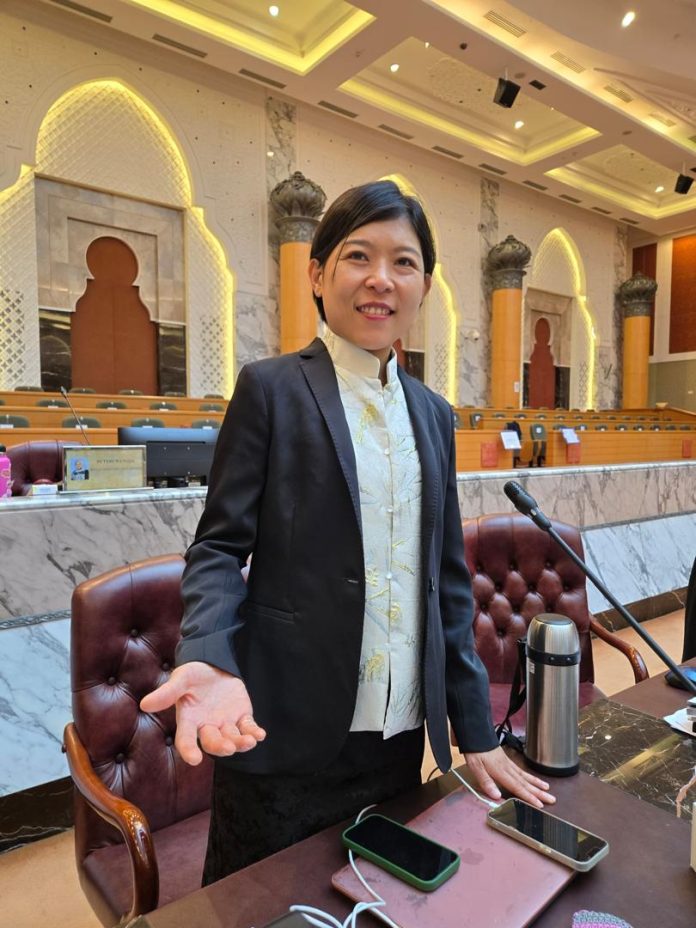The proposed amendments to the Communications and Multimedia Act 1998 (Act 588) and the Malaysian Communications and Multimedia Commission Act (Act 589), represent an important step in protecting Malaysians from the dangers of an increasingly digital world.
These changes signal a much-needed commitment to tackling crime like online child exploitation, scams, and hate speech while safeguarding the principles of freedom and accountability.
As a State legislator, I’ve received numerous reports from the public, including my voters, who fall victim to scams and child exploitation. Not too long ago, an elderly voter in Jementah, Segamat, Johor was scammed of RM65,000; and it breaks my heart to hear such stories.
Based on official statistics, an estimated 100,000 children in Malaysia are exposed to online sexual exploitation and abuse each year. The urgency of these amendments cannot be overstated. The proposed changes, which enhance penalties and introduce clearer definitions of harmful content, demonstrate the seriousness by the MADANI government to clamp down on these violations.
As we know, online predators that manipulate, blackmail, or coerce children have thrived in a legal grey area for too long. The proposed amendments send a resounding message that the exploitation of children will be met with the full force of the law.
Beyond child safety, the amendments also address the growing scourge of cybercrime. In 2023 alone, Malaysians lost RM1.2 billion to online scams, highlighting the sophistication of cybercriminals and the gaps in current legal protections.
From fake loan schemes to fraudulent online sales, these scams rob individuals and businesses of their hard-earned money and erode trust in digital platforms. By introducing provisions to tackle fraud, dishonesty, and unsolicited electronic messages, the amendments aim to restore public confidence in the digital economy and ensure that online transactions are safer for all.
One of the features that stand out in the proposed amendments is the effort to categorise offensive content into clear and specific definitions, such as obscene, indecent, menacing, and grossly offensive material.
This clarity is essential for enforcing the law effectively and ensuring that harmful content is identified and removed swiftly. At the same time, the amendments take care to balance this with the protection of ethical journalism, satire, and good-faith commentary.
I am heartened to learn that freedom of expression remains a cornerstone of Malaysia’s democratic values, and these changes strike an important balance between safeguarding this freedom and addressing the real harms that unchecked online content can cause.
Hate speech and inflammatory rhetoric, especially on social media, are particularly damaging in a plural country like Malaysia. These platforms have increasingly been exploited to sow division, incite unrest, and threaten the harmony that binds us as a nation.
The proposed legislation recognises the urgent need to curb such abuses while maintaining a fair and transparent approach to enforcement. Malaysia’s multiethnic and multireligious fabric is a source of pride and strength, and it is crucial to ensure that digital platforms do not become breeding grounds for hate and discord.
It is also worth noting that these amendments align Malaysia with global best practices. Countries like Australia and Singapore have enacted similar laws to regulate harmful content and enhance protections for vulnerable groups.
In Australia, the Online Safety Act empowers authorities to respond swiftly to cyberbullying, non-consensual image sharing, and other abuses. Meanwhile, Singapore’s Protection from Online Falsehoods and Manipulation Act (POFMA) addresses the spread of false information and harmful online content. Malaysia’s proposed amendments place us firmly on this progressive path, ensuring that we remain competitive and responsible in the global digital arena.
These reforms also address long-standing gaps in enforcement and accountability. For too long, predators, scammers, and hate-mongers have exploited the anonymity and reach of the internet to harm others. The proposed changes empower law enforcement agencies with the tools needed to act decisively, ensuring that offenders are held accountable and that justice is served.
These amendments are a timely and necessary evolution of our laws, and I welcome the Ministry’s effort in championing them. It is a bold and forward-looking step that balances safety, accountability, and freedom, and it paves the way for a digital landscape that Malaysians can navigate with confidence.




